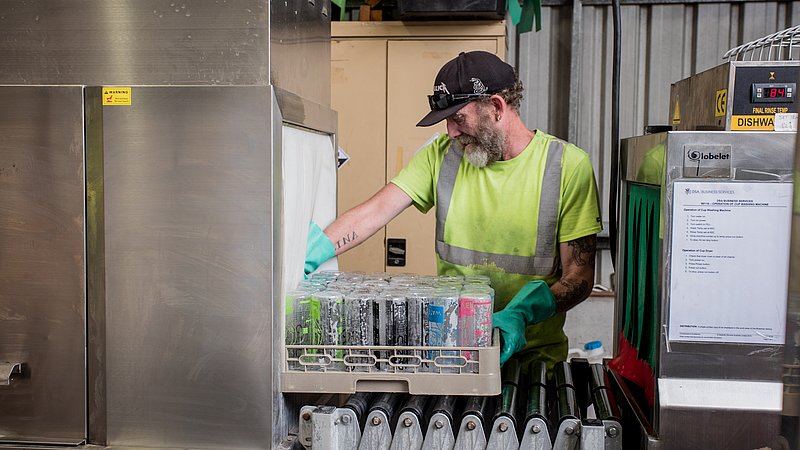Admittedly, the discussion about the usefulness of plastic bottles is not new - especially when it comes to the health aspect. It is well known that chemicals from the plastic pass into the contents - for example water. Comparatively new, however, is the realisation that this is especially true for recycled PET bottles.
A new study by Brunel University in London examined which substances and chemicals pass into the water. They discovered more than 150 potecnally harmful chemicals, but what stood out most was the high concentration of so-called food contaminant chemicals (FCCs) in recycled bottles. It was much higher than in PET bottles without recycled content. So does contamination occur during the recycling process? And does it follow that we should avoid recycled PET bottles if people's health is paramount?
The researchers at Brunel University confirmed in their studies that the harmful substances come from different sources. Study leader Dr Eleni Iacovidou and her team found that the impurities came from catalysts and additives used in manufacturing. At the same time, the material deteriorated during its life cycle as a bottle and during production. Conversely, this means that it is not the recycling process itself that adds more hazardous substances to the PET bottles, which then pass into the contents, but that the older material loses more of these substances due to its condition.
Two solutions are conceivable - one is more radical than the other
The good news for the scientists, however, is that the contamination by chemicals, whether in recycled or newly produced bottles, can be minimised - and that with the so-called "super cleaning" technology. The focus here is on a three-stage cleaning process: all bottles first go through a high-temperature wash, then a gas wash and finally chemical cleaning. This complete process is not yet the standard. But if it were to become the standard, the contamination of recycled bottles would also become less harmful and could even match the quality of virgin PET bottles again.
But let's be honest: this solution can only be a temporary one. It is true that human health must come first, and therefore it is only right to make "super-cleaning" technology the standard. But what about the health of our environment? In the long run, we need not only to improve our cleaning methods, but to abandon plastic bottles altogether when there are better alternatives.


